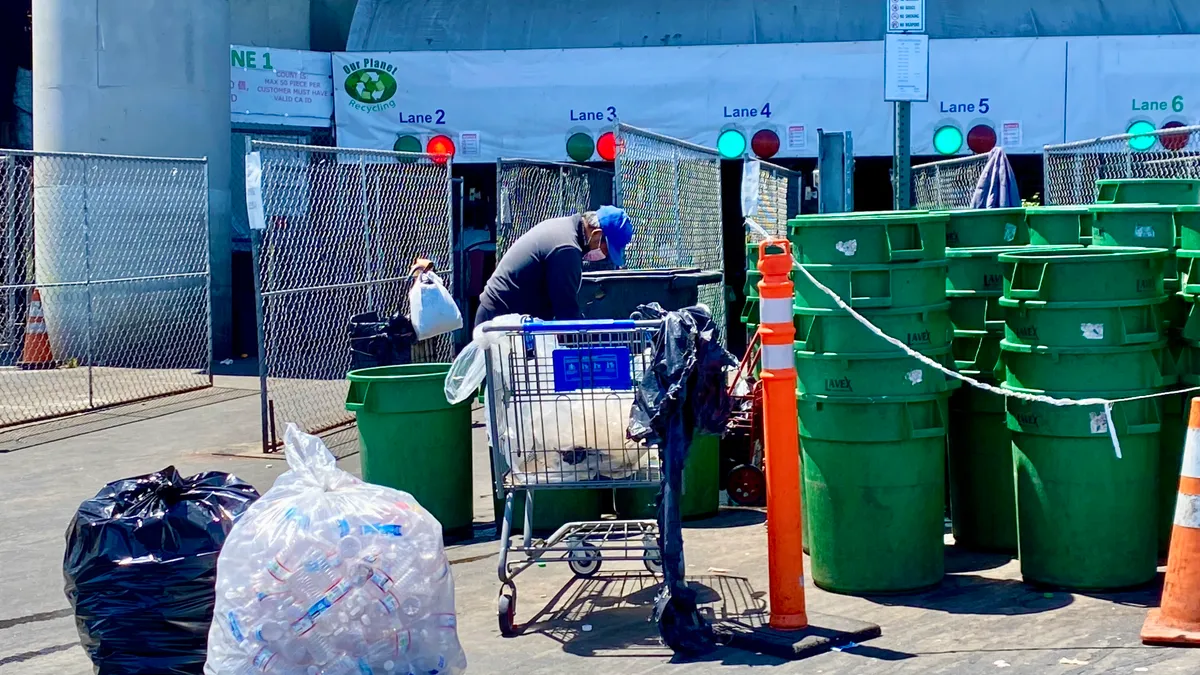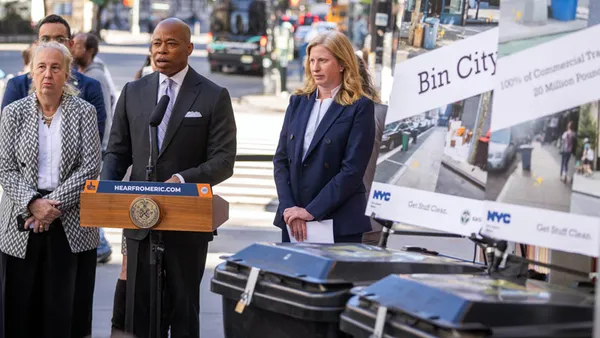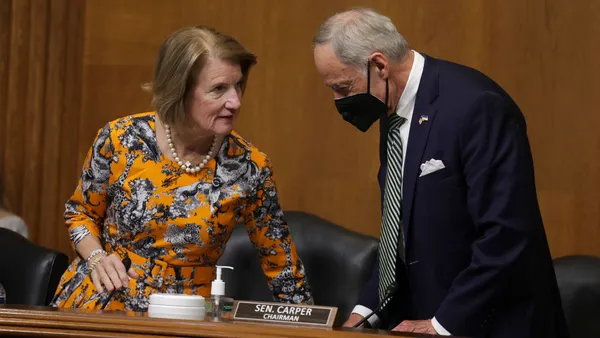UPDATE: San Francisco's Refuse Rate Board voted unanimously on June 19 to approve the full rate increases recommended by the city's public works director, as reported by SFGate.
Monthly collection rates will increase by more than 14% starting in July, followed by a 5% increase in 2019 and a 1% increase in 2021. The city received 13 complaints about the increase being too high, citing a range of factors about its effect on fixed-income families and multi-unit buildings.
Prior to the rate board vote, Director of Public Works Mohammed Nuru responded to each point in these complaints — including an accusation of "monopoly pricing" by Recology — with a detailed June 14 letter. Among his many responses was a note that minimum required refuse service for families had been reduced from 20 gallons to 16 gallons, a step which is less common in other cities and lines up with San Francisco's "zero waste" diversion goals.
Dive Brief:
- San Francisco residents are set to see a 14.4% rate increase on their monthly collection bills starting in July. This will raise the price of collecting three 32-gallon bins with refuse, recyclables and organics to $40.04 for the average single-family home in recognition of growing costs to maintain the city's ambitious "zero waste" program, as reported by SFGate.
- The city's public works director outlined his reasons for the increase in a recent report after multiple public hearings and workshops. While this increase is lower than the 16.4% hike proposed by Recology, the city's plan will actually lead to a higher percentage increase in the second year than the service provider requested. Though the third year will see a slight decrease, and discounts for low-income households have been expanded.
- Recology cited growing costs of a new five-year labor contract, landfill fees and composting regulations as some of the factors behind its requested rate increase. In return, the company will hire new specialists to educate residents about diversion, routinely steam clean bins and expand collection of bulk items such as furniture.
Dive Insight:
San Francisco's average monthly collection bill will still be lower than some municipalities in the Bay Area and this is the first major increase since 2013. Yet some residents have pushed back on what they see as another sign of the city becoming even more unaffordable. It is still possible that residents could appeal the city's recommendation to San Francisco's Refuse Rate Board by May 30.
The city's public works director and Recology are standing by their determination that these new costs are part of what it will take to become a "zero waste" city by 2020. As the city approaches this goal — with diversion rates reportedly more than 80% depending on how they're calculated — it has found the gap to 90% or "zero" harder to bridge. The city sees expanding education as a key step to reaching that 2020 number and, as seen by recent instances of rampant littering in local parks, there is more to be done on waste awareness.
Adapting infrastructure is also a critical element to making this work, as recognized by Recology's requested cost increases to cover shifting truck routes and higher processing costs. Last year, the company also completed a $11.6 million upgrade at its local material recovery facility to improve sorting capabilities for newer packaging such as small online shipping boxes and lightweight food or beverage containers. As more cities set their own "zero waste" goals they will also need to balance the cost of driving higher diversion rates with the benefits of achieving them.












